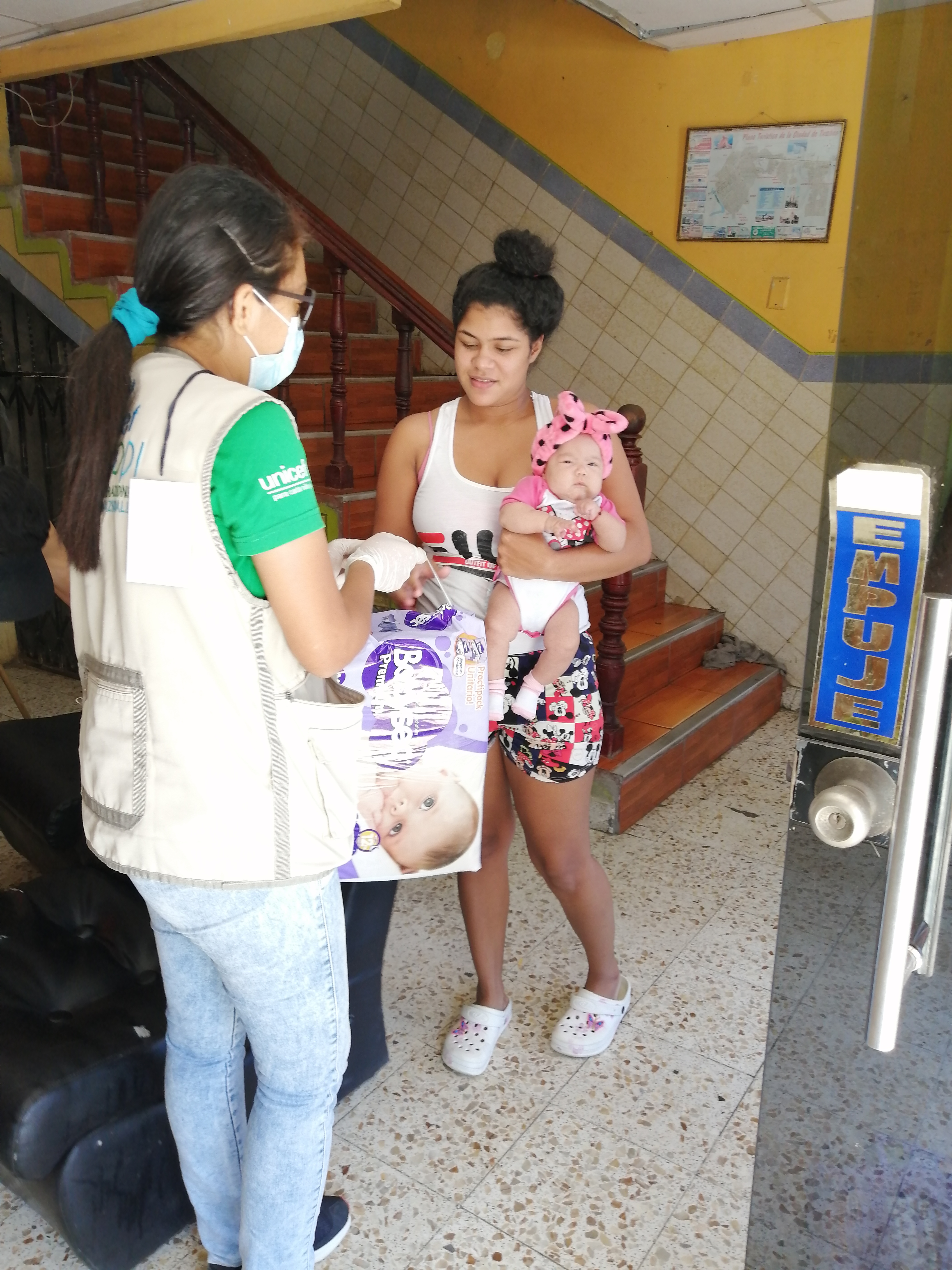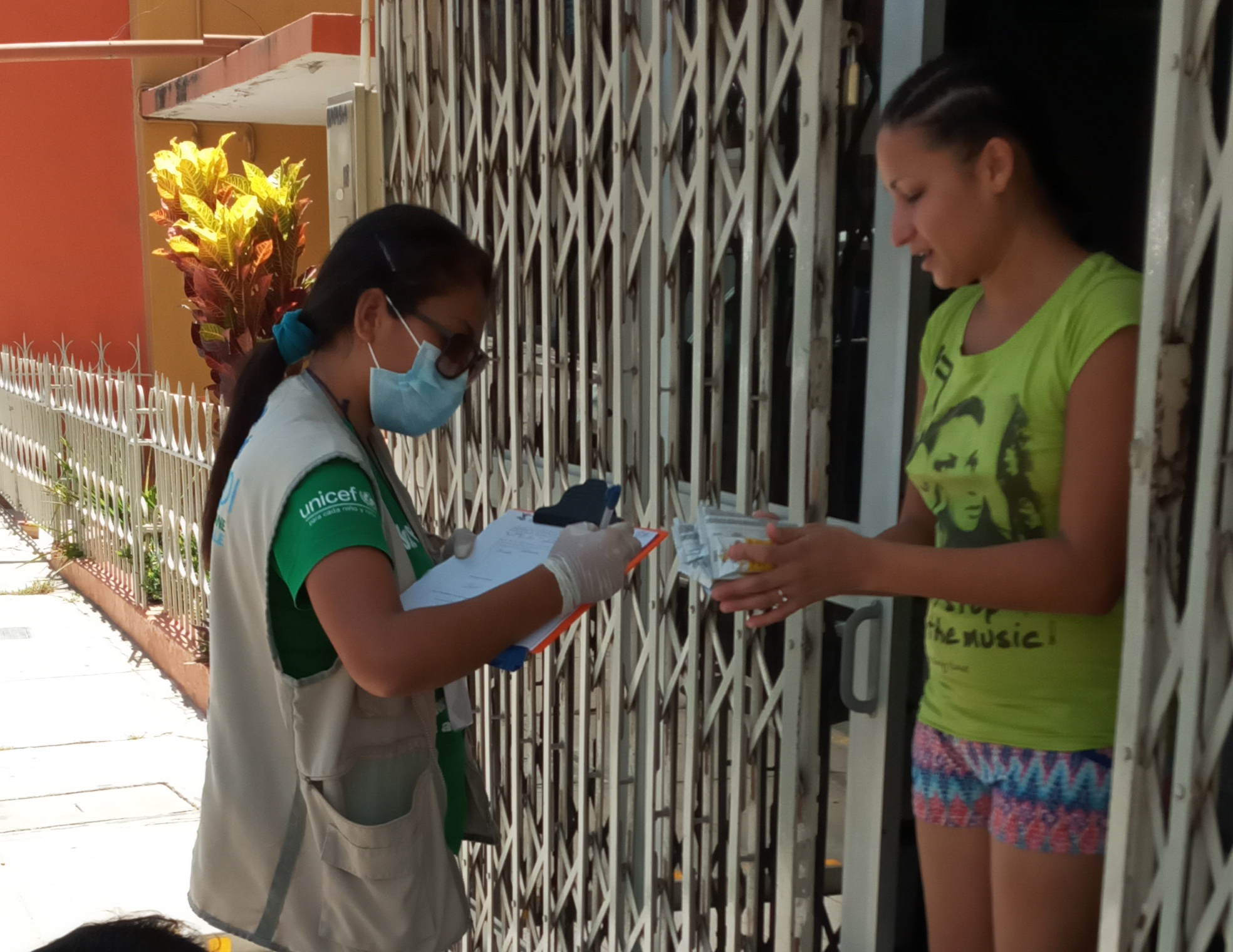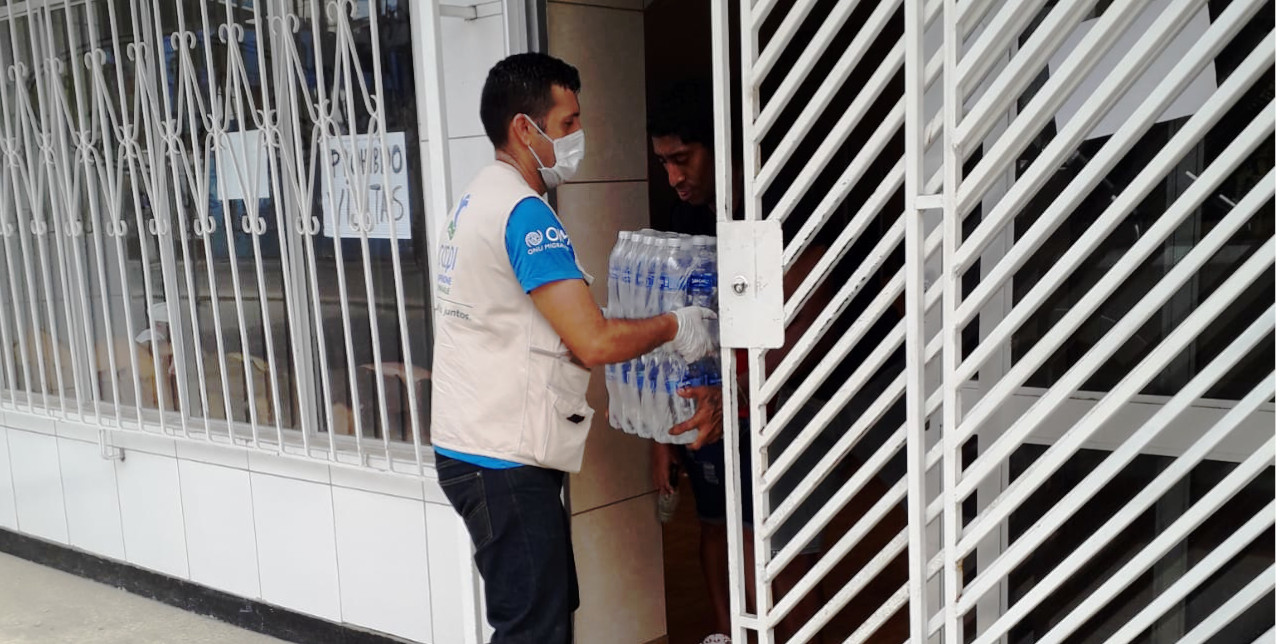23-04-2020 | di COOPI
Peru. Covid-19: our support to Venezuelan migrant continues.
Tumbes, Peru – To face COVID-19 emergency, the Peruvian government introduced prevention and confinement measures which will remain in force until the 26th of April. These procedures blocked people’s movements, especially those of Venezuelan migrant families. COOPI, in collaboration with UNICEF and IOM, is supporting vulnerable families, providing drinking water, nutritional integration and baby’s diapers.

Distribution of diapers
In the framework of the UNICEF funded project, “Supporting migrant children and their families in vulnerable conditions in the North of the country to preserve their state of health”, COOPI is providing humanitarian assistance to Venezuelan families (208 persons in total) living in five different hotels in the city of Tumbes. Families are mostly composed by young couples with small children, single mothers or people who suffer from mental disorders. In the latest weeks, diapers’ kits were distributed (15 diapers for each child) to every family with babies younger than 3 years old. Moreover, nutritional supplements ready to use (PLUMPY DOZ) were distributed to 75 children aged between 0 and 9 years and 11 months. These integrations will help children to go through the situation they are living in, where families struggle in buying enough food due to the lack of money.

Distribution of diapers and nutritional supplements
COOPI is also active under the project “ Support for vulnerable families and persons in situations of migratory transit on the northern border of Peru (Phase II)” funded by the International Organization for Migration (IOM). 83 boxes of drinking water of 20 litres each and 1,170 small bottles of water were given to Venezuelan families (93 people in total) living in two shelters managed by IOM in Tumbes. Due to the government’s restriction, Venezuelan migrants cannot continue their journey to other cities in the country becoming extremely vulnerable. Distributed water will answer to their needs and their children’s ones.




 Peru
Peru